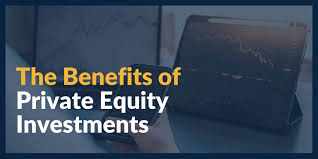How Regulation is Opening Up Access to Private Equity Markets
Private markets have quickly emerged as an essential source of global capital. Investors can access an expansive variety of business sectors and

industries via private markets compared to public ones which tend to focus more on company acquisition. Furthermore, private investments tend to have lower correlation with short-term economic or geopolitical events and less exposure to finite performance-based measures by company leadership.
Investors also have access to assets not available in public markets, including real estate, infrastructure and natural resource companies that don’t wish to go public – these don’t come under as many regulatory constraints, making them a good way to diversify portfolios.
However, recent years have witnessed an increasingly challenging regulatory environment for PE transactions. Increased scrutiny from CFIUS and other regulatory bodies has hindered or delayed deal closings on PE transactions.
Due to the global economic crisis, banks reduced their risk appetites and left an opportunity for private equity firms, hedge funds, credit funds and other alternative asset managers to fill this void in the market.
As more private equity fund management companies branched out into lending, creating business development companies (BDCs), many private investors such as pension and insurance funds established their own in-house divisions to manage private loans and investments.
The BDC business model provides investors with an opportunity to co-invest with PE firms without committing capital directly, thus providing the benefits of an aggregated investment with lower fees and greater liquidity than investing directly in private markets.
All these factors have combined to create an adverse environment for M&A activity, which has seen activity decline considerably during the first half of 2023. As interest rates and inflation rise, financing costs increase for both PE buyers and their lenders – leading to shifts toward buyer-friendly terms in deals including lower purchase prices, extended exclusivity periods and earn-outs as creative solutions to valuation disagreements.








